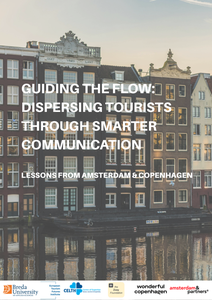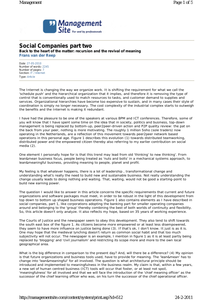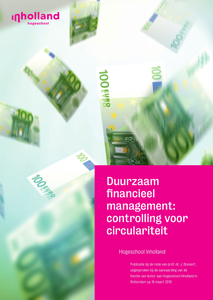Moral food lab: Transforming the food system with crowd-sourced ethics
LINK
Touristification of consumption spaces describes a process in which retail and hospitality businesses adapt to the tourist demand, eroding place attachment among local residents. While this is an important cause of resistance to tourism, little is known about the mechanisms that drive or mediate this process. We address this gap by interviewing entrepreneurs in Amsterdam. We found three distinct areas in close proximity where entrepreneurs responded to increasing tourism in markedly different ways; by crowd-pleasing, niche-playing and gentrifying. The resulting microgeographies of touristification of consumption spaces have not only been overlooked in literature, but also in urban policies. This causes a mismatch between the more generic, city-wide regulation and the highly differentiated effects of tourism on consumption spaces.
DOCUMENT

The real-time simulation of human crowds has many applications. In a typical crowd simulation, each person ('agent') in the crowd moves towards a goal while adhering to local constraints. Many algorithms exist for specific local ‘steering’ tasks such as collision avoidance or group behavior. However, these do not easily extend to completely new types of behavior, such as circling around another agent or hiding behind an obstacle. They also tend to focus purely on an agent's velocity without explicitly controlling its orientation. This paper presents a novel sketch-based method for modelling and simulating many steering behaviors for agents in a crowd. Central to this is the concept of an interaction field (IF): a vector field that describes the velocities or orientations that agents should use around a given ‘source’ agent or obstacle. An IF can also change dynamically according to parameters, such as the walking speed of the source agent. IFs can be easily combined with other aspects of crowd simulation, such as collision avoidance. Using an implementation of IFs in a real-time crowd simulation framework, we demonstrate the capabilities of IFs in various scenarios. This includes game-like scenarios where the crowd responds to a user-controlled avatar. We also present an interactive tool that computes an IF based on input sketches. This IF editor lets users intuitively and quickly design new types of behavior, without the need for programming extra behavioral rules. We thoroughly evaluate the efficacy of the IF editor through a user study, which demonstrates that our method enables non-expert users to easily enrich any agent-based crowd simulation with new agent interactions.
MULTIFILE
IT-based networking trends such as the rise of social media, crowd sourcing, open innovation, and cloud computing enable a profoundly different way of working and collaborating that challenges significantly traditional approaches of companies towards governance, i.e. the mechanisms a company employs to achieving business results and safeguarding information. Standard practices developed with a hierarchical model of the company in mind, are inadequate for providing sufficient correlation between governance mechanisms deployed and results achieved. Popular literature on the subject states that dealing effectively with such new technologies in a business environment requires relinquishing control and subverting to trust. This paper makes the case that deploying successfully new IT-based networking tools rather involves shifting one’s trust from a well-established and well-known governance system based on hierarchy and control towards another governance system, termed in the literature as network governance. This paper assesses when network governance is the better suited governance system. The presented theoretical model helps to understand how companies should use arising new technologies and which tasks are suited for network-driven IT-applications. Furthermore, the model enables to understand how network governance works to achieve business results and to safeguard information exchanges.
DOCUMENT

"Snapt u wat u ziet? Of zijn we gevangen in een nieuwe ideologie? " Lector Frans van der Reep daagde de toehoorders bij de Pieter Teyler van der Hulstlezing bij Inholland Haarlem uit tot kritische reflectie op innovatie en het recht op offline leven. "Pas vanuit een begrip wat er gebeurt als gevolg van nieuwe tech, en dat wij de crowd zijn, kunnen we positie kiezen en onszelf echt organiseren."
MULTIFILE

DOCUMENT

The Internet is changing the way we organize work. It is shifting the requirements for what we call the “schedule push” and the hierarchical organization that it implies, and therefore it is removing the type of control that is conventionally used to match resources to tasks, and customer demand to supplies and services. Organizational hierarchies have become too expensive to sustain, and in many cases their style of coordination is simply no longer necessary. The cost complexity of the industrial complex starts to outweigh the benefits, and the Internet is making it redundant. The question I put forward in this Article, after a short description of how I envision “the change,” is what new requirements should be met by software in order to meet the requirements of the networked economy. Business will develop from Business-to-Consumer (B2C) to Consumer-to- Business (C2B) to People-to-People (P2P), customers more and more taking control over business activities, overhead being replaced by customer focus. This is also a new reality for the software world.
DOCUMENT

IT-based networking trends such as the rise of social media, crowd sourcing, open innovation, and cloud computing enable a profoundly different way of working and collaborating that challenges significantly traditional approaches of companies towards governance, i.e. the mechanisms a company employs to achieving business results and safeguarding information. Standard practices developed with a hierarchical model of the company in mind, are inadequate for providing sufficient correlation between governance mechanisms deployed and results achieved. Popular literature on the subject states that dealing effectively with such new technologies in a business environment requires relinquishing control and subverting to trust. This paper makes the case that deploying successfully new IT-based networking tools rather involves shifting one’s trust from a well-established and well-known governance system based on hierarchy and control towards another governance system, termed in the literature as network governance. This paper assesses when network governance is the better suited governance system. The presented theoretical model helps to understand how companies should use arising new technologies and which tasks are suited for network-driven IT-applications. Furthermore, the model enables to understand how network governance works to achieve business results and to safeguard information exchanges.
DOCUMENT

The Internet is changing the way we organize work. It is shifting the requirement for what we call the ‘schedule push’ and the hierarchical organization that it implies, and therefore it is removing the type of control that is conventionally used to match resources to tasks, and customer demand to supplies and services. Organizational hierarchies have become too expensive to sustain, and in many cases their style of coordination is simply no longer necessary. The cost complexity of the industrial complex starts to outweigh the benefits and the Internet is making it redundant.
MULTIFILE

In deze rede willen we helder krijgen welke ontwikkelingen in het bedrijfsleven van invloed zijn op ondernemingen en het financieel management van deze ondernemingen. Met name het streven naar een circulaire economie wordt als een ontwikkeling van betekenis gezien.
DOCUMENT
